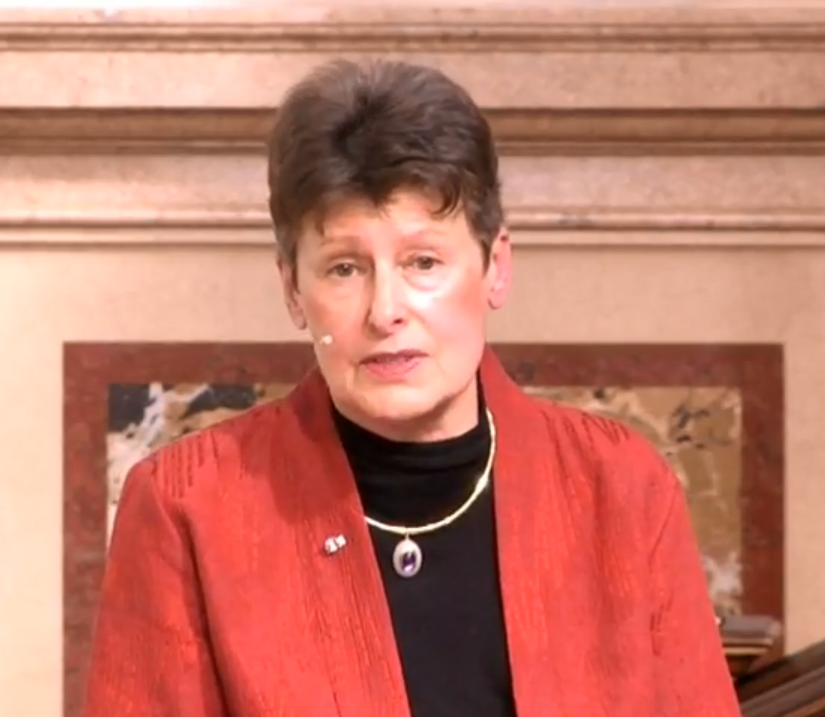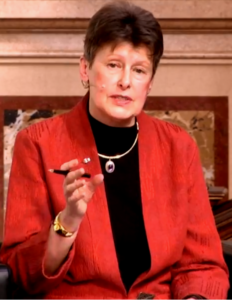

VCDNP Senior Fellow Angela Kane participated in a panel discussion on 29 March 2019 on "International Law in Tomorrow's Wars" under the auspices of the biennial Humanitarian Congress Vienna (HCV). The first HCV was held in 2011 and has continued since with the aim to assess changing needs in humanitarian work, as well as to give such work heightened visibility. The panel discussion in which Ms. Kane took part was focused on international humanitarian law against the backdrop of increased war fighting in urban areas, the advent of lethal autonomous weapons systems and the global fight against terrorism.
In addition to Ms. Kane, the panel also featured keynote speaker Françoise Bouchet-Saulnier (Médecins sans Frontières), as well as Heather Harrison Dinniss (Swedish National Defence University), Manfred Nowak (University of Vienna) and Eva Svoboda (International Committee of the Red Cross).
During her remarks, Ms. Kane paid particular regard to the ongoing conflict in Syria and the chemical weapons attacks, the investigation of which she oversaw under UN auspices during her tenure as UN High Representative for Disarmament Affairs. She also addressed the authority of the Organisation on the Prohibition of Chemical Weapons to assign attribution in cases of chemical weapons attacks, as well as the origin of that authority.
See Ms. Kane's full remarks below from the Humanitarian Congress Vienna's Facebook page, beginning at 36:30.
International Law in Tomorrow´s Wars
Keynote speaker: Françoise Bouchet-Saulnier Moderator: Andras Vamos-GoldmanPanel members: Françoise Bouchet-Saulnier, Heather Harrison Dinniss, Angela Kane, Manfred Nowak, Eva SvobodaInternational humanitarian law (IHL) is meant to protect those not taking part in hostilities during armed conflict. However, wars today are increasingly fought in urban settings, and civilians rather than the military bear the brunt of armed violence.The use of explosive weapons in populated areas can disproportionately affect civilians, even more dangerously so in combination with chemical and nuclear charges. Autonomous weapon systems and combat robots add their own set of legal and ethical questions, in particular the degree of human control required. Has IHL evolved to keep up with these developments, and where are the successes and set-backs?The fight against terrorism raises different issues, such as the impact that such operations may have on neutral, independent and impartial humanitarian action. Counterterrorism legislation needs to take into account not only security but also existing international law, which includes both IHL and human rights law.What are the challenges for human rights and international humanitarian law, when projecting the way today’s wars are fought further into the future?
Posted by Humanitärer Kongress Wien / Humanitarian Congress Vienna on Friday, March 29, 2019
By continuing to use the site, you agree to the use of cookies. more information
The cookie settings on this website are set to "allow cookies" to give you the best browsing experience possible. If you continue to use this website without changing your cookie settings or you click "Accept" below then you are consenting to this.